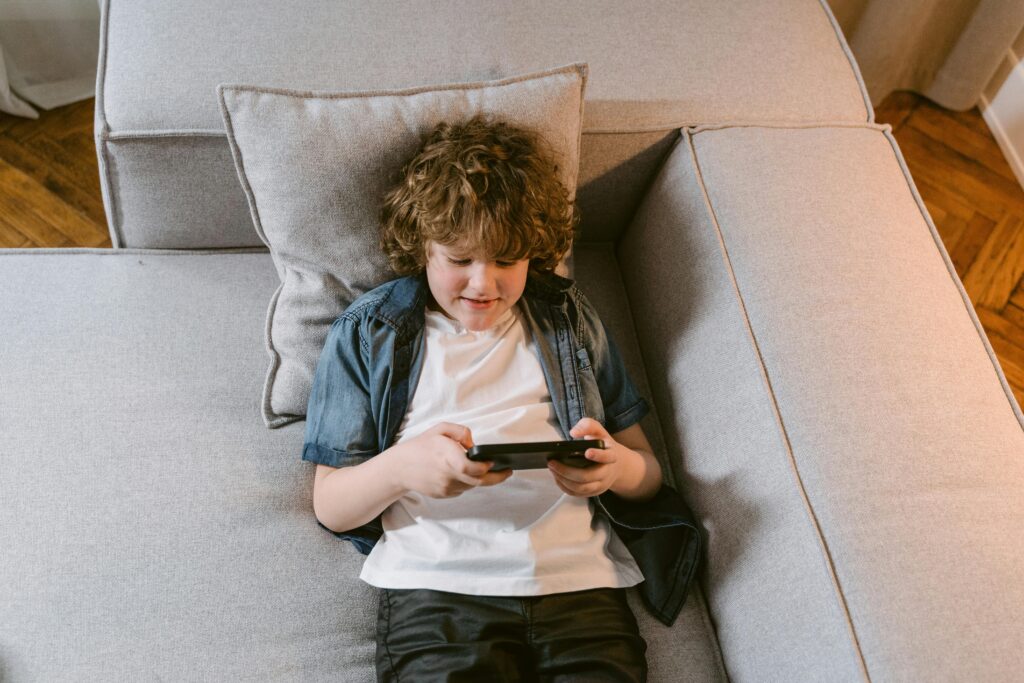The Australian Government passed the Online Safety Amendment (Social Media Minimum Age) Bill 2024 in November to ban young people under the age of 16 from using certain social media platforms.
This will include Snapchat, TikTok, Facebook, Instagram and X, among others.
The ban is expected to take effect later this year to allow social media companies time to conform with the new laws.
Once in effect, these laws will force social media companies to take “reasonable steps” to remove and exclude users under 16 years of age from their platforms.
Act for Kids understands this looming change has caused some confusion among parents and carers, which is why we have put together the below guide explaining everything you need to know about the social media ban:
How will it be enforced?
The eSafety Commissioner will be responsible for defining the “reasonable steps” social media companies must take to prevent under-16s from using their platforms and provide regulatory guidance on how to implement them.
It is unclear what approach the eSafety Commissioner will recommend, however the government is currently conducting trials on technology that could be used to verify age.

Will there be penalties for parents/carers if the ban is broken?
The eSafety Commissioner has stated there will be no penalties for underage users who access an age-restricted social media platform, or for their parents or carers.
This is because it will be the responsibility of the relevant service providers to implement systems and processes that prevent underage users from creating or maintaining a social media account.
When will it be enforced?
By December 2025.
My child already has social media on their phone – what do I do?
Act for Kids encourages parents and guardians to have age-appropriate conversations and educate their children about the dangers the internet can pose including the risks associated with social media platforms, adjusting privacy settings for websites or platforms that have chat functions, and encouraging the use of devices in common areas of the home.
The eSafety Commissioner says more information will be made available over the coming months to help parents, carers, young people and educators understand and prepare before the ban comes into effect.
Information regarding enforcement, affected social media platforms, and other important details will be developed throughout 2025 and made available on the eSafety website.
Where can I get help if my kids struggle with this ban?
It’s always a good idea to regularly check-in on how your child is coping, and ask open questions, such as how they feel about the ban or find out more about their online activity to understand their online connection needs.
If your child is struggling, it’s important to seek help by talking to your GP or child health practitioner.
More support is available:
Kids Helpline – Call 1800 55 1800 (24 hours a day)
Beyond Blue – Call 1300 22 4636 (24 hours a day)

Is Meta planning to get rid of fact-checkers? And what will this mean for online safety?
Meta CEO Mark Zuckerberg has announced plans to scrap its fact-checking on the Facebook, Instagram and Threads platforms.
The role of fact-checkers is to verify the factual accuracy of content.
It is unclear when this change will take effect as Meta told the Albanese government it has “no immediate plan” to scrap this on its platforms in Australia.
The independent fact-checking team will be replaced with a “community notes” model like the one used by platform X, which describes this method as allowing other users to “add context to potentially misleading posts”.
Act for Kids believes this is a step backwards at a time when communities are demanding social media companies be held accountable for improving the safety and wellbeing of all social media users, but in particular children who can be readily exposed to confronting information online, whether it is true or not.
Although the online space should foster positive connections and enhance our lives, sadly, this is not always the reality.
Act for Kids strongly believes an objective fact-checking system is essential to prevent the spread of harmful disinformation and misinformation.

Are there safe ways for kids to interact online?
Yes, Act for Kids encourages devices be kept out of the bedroom to ensure there is some oversight over what children are accessing and to help create safer online experiences.
Here are some other simple steps to help keep kids safe online:
- Secure household devices by setting parental controls on all devices.
- Supervise children online and monitor the material they are accessing.
- Turn off chatroom functions on gaming platforms.
- Keep devices in a shared family area, this will assist to regularly check their privacy settings and internet search limitations as well as yours.
- Consider some wi-fi downtime in your household – hours in the day/evening where you turn off the wi-fi for everyone.